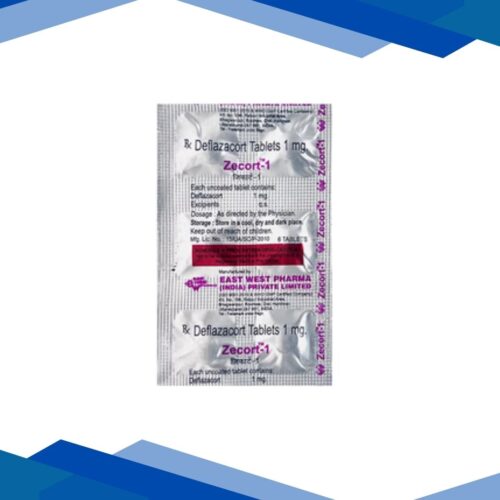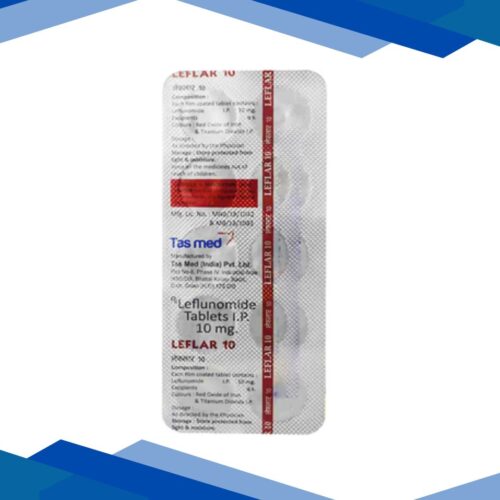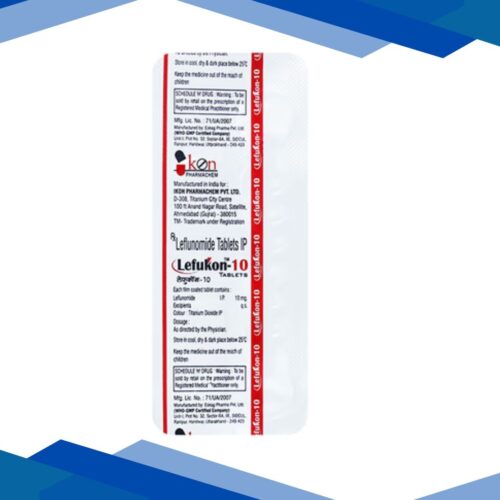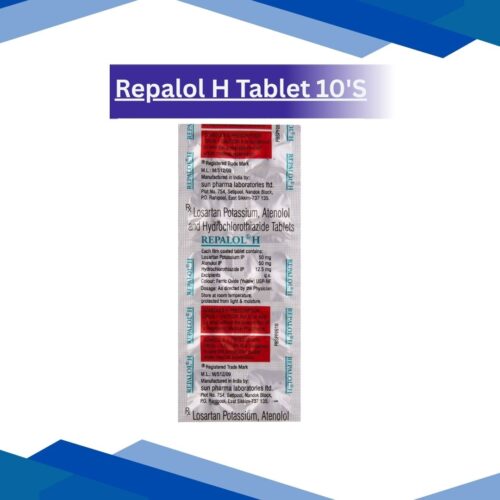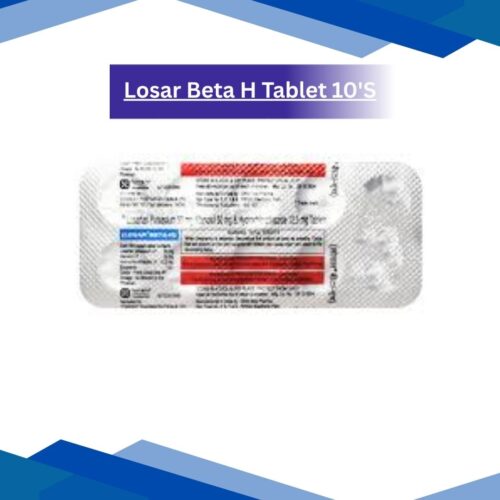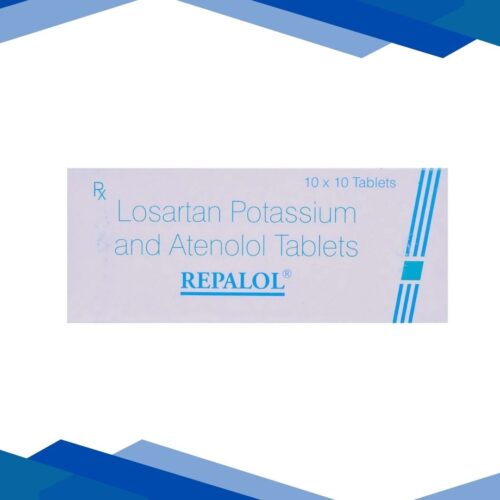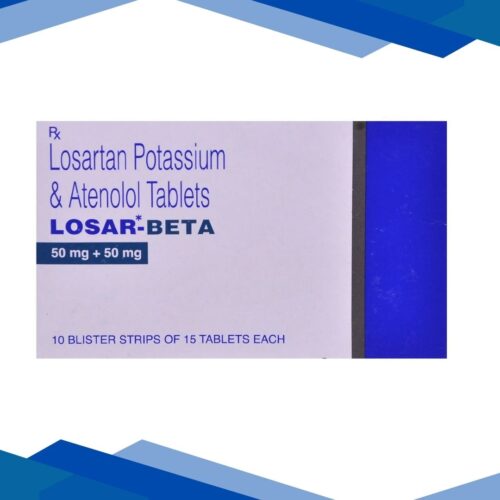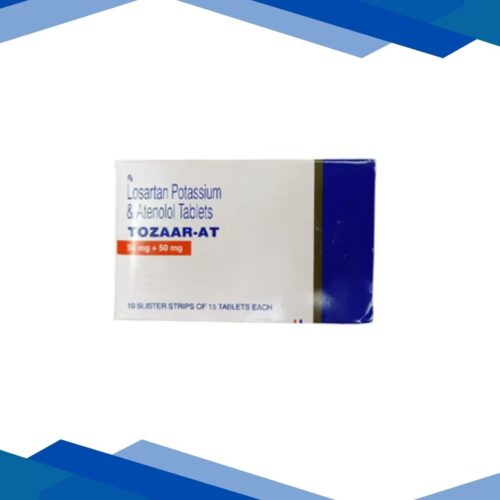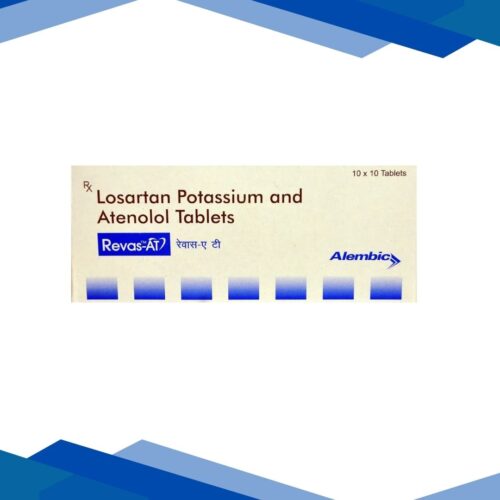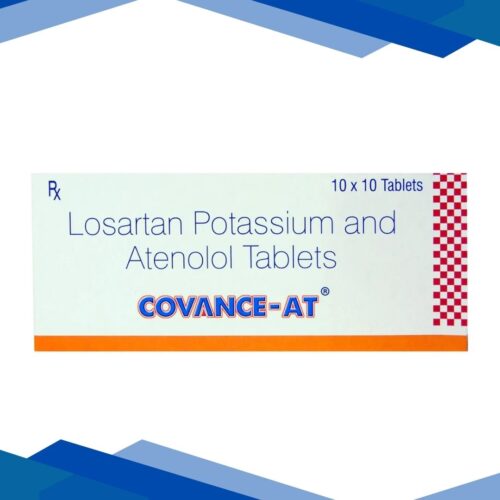Atenolol
ATENOLOL
Overview:
Atenolol is commonly used to treat heart-related conditions. It helps the heart work more efficiently, eases its workload, and lowers the pressure inside blood vessels. This can prevent serious problems like heart attacks or strokes. It’s often taken as a daily tablet.
Classification: beta-blocker
Uses:
High blood pressure (hypertension)
Chest pain (angina)
Irregular heart rhythms (arrhythmias)
To help the heart recover after a heart attack
Sometimes used to prevent migraines or manage symptoms of anxiety (off-label use)
How It Works:
Atenolol blocks the effects of stress hormones like adrenaline on the heart. This helps:
Slow the heart rate
Lower blood pressure
Reduce the heart’s oxygen demand, which helps relieve chest pain
Calm irregular heartbeat patterns
Dosage: As prescribed by your doctor.
Side effects:
Some people may experience:
Tiredness or fatigue
Cold hands and feet
Dizziness or lightheadedness
Slow heartbeat
In some cases: mood changes, shortness of breath, or trouble sleeping
Precautions:
Should be used with caution in people with asthma, diabetes, or thyroid issues
Don’t stop suddenly—this can cause a spike in heart rate or chest pain
Tell your doctor if you have heart block, low blood pressure, or poor circulation
May mask signs of low blood sugar in diabetics—monitor blood sugar closely
Use in pregnancy or breastfeeding only if prescribed by a doctor
Disclaimer:
This content is for informational purposes only. Always consult a healthcare provider for medical advice and proper dosage.
Losartan
LOSARTAN
Overview:
Losartan lowers blood pressure by helping your blood vessels loosen up, so your heart doesn’t have to work as hard.. It also helps protect your kidneys and lowers the risk of heart problems over time — especially in people with diabetes.
Classification:Angiotensin II Receptor Blocker (ARB)
Uses:
Losartan is mainly used to lower high blood pressure and help protect your heart and kidneys. People with diabetes or a higher risk of heart trouble often benefit most from it. It also helps prevent strokes and manage some kidney-related problems.
How it works:
Losartan keeps your blood vessels loose and open, so blood can move through more easily. It does this by blocking a natural chemical in your body that normally makes your blood vessels tighten up. By keeping things more relaxed inside, it lowers your blood pressure, takes stress off your heart, and helps protect your kidneys — especially if you have diabetes or high blood pressure.
Dosage: As prescribed by your doctor.
Side Effects:
Dizziness or lightheadedness, especially when you first start taking it
Tiredness or feeling low on energy
Cold-like symptoms (stuffy nose, sore throat)
Back pain
Diarrhea
Precautions:
Before you begin Losartan, tell your doctor if you’ve ever had problems with your kidneys, liver, or high potassium. Be sure to tell your doctor about any other medicines you’re taking so they don’t interfere with each other.If you’re pregnant, planning to be, or breastfeeding, have a quick chat with your doctor first, as this medicine isn’t safe during pregnancy.
Disclaimer: This content is for informational purposes only. Always consult a healthcare provider for medical advice and proper dosage.

